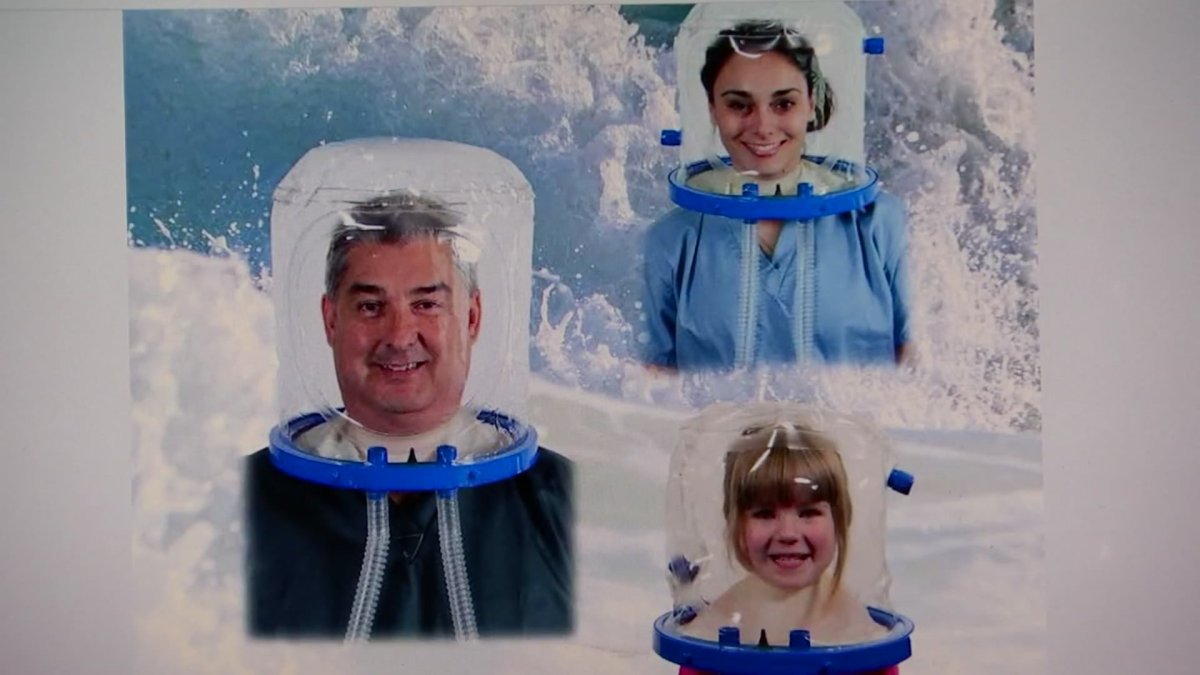
The nationwide shortage of ventilators has put the spotlight on a North Texas company that offers an alternative. A small, family-run business based in Waxahachie makes hyperbaric oxygen devices that doctors are now using to treat their COVID-19 patients. Health reporter Bianca Castro shares how it works.
The nationwide shortage of ventilators has put the spotlight on a North Texas company that offers an alternative.
The small, family-run business based in Waxahachie makes hyperbaric oxygen devices that doctors are now using to treat their COVID-19 patients.
Sea-Long Medical Systems, Inc., makes and assembles hyperbaric hoods, oxygen devices that help patients breathe.
Hyperbaric oxygen therapy is a well-established treatment for decompression sickness, serious infections, and wounds that won't heal, according to the Mayo Clinic.
The helmet-based ventilation system fits over a patient's head and seals at the neck.
Company president Christopher Austin said orders started pouring in after doctors in hospitals on the east coast hit hard with COVID-19 cases started modifying the helmets for use in place of a ventilator.
The helmets can help get oxygen into a COVID-19 patient's lungs too damaged to function normally but doesn't require intubation like a ventilator.
Health Connection
Get connected to a healthier life.
Some doctors have reported shorter stays in the ICU.
It's promising but the problem, according to Austin, is making more of them quickly.
"Before, we had 50 a week," said Austin. "Now, they'll order 200 to 5,000. We have one country that wants 20,000."
The team, made up of Austin, his wife, their two children and a few paid employees for a total of eight, is ramping up production at its small factory in Waxahachie.
They've ordered more machines to arrive this week and hope to go from manufacturing 100 devices a day to 5,000 a week, but that is still short of meeting demand.
Austin said in order to fulfill all the orders as fast as possible, they need investors or government grants to pay for more equipment, supplies, and staff to expand.
He said that until that happens, they will do what they can to help patients in the coronavirus crisis.
"We are doing what we are supposed to do to help," said Austin.
He said most orders have come from the East Coast and Northwest as well as Europe. Only a few orders have come from Texas doctors and hospitals. They are authorized to sell to medical professionals, not the general public.